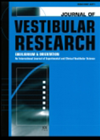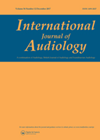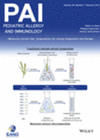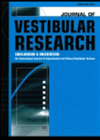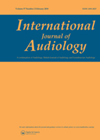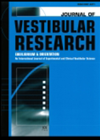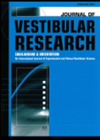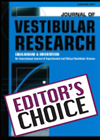
Journal Reviews
The degree of barbecue rotation matters in horizontal canal BPPV
Treatment of horizontal canal BPPV (Hc-BPPV) is not without controversy due to the several repositioning manoeuvres advocated for its treatment. Among the many, barbecue rotation (Br) is perhaps the most commonly used for canalithiasis of Hc-BPPV. Should the rotation be...
Is virtual reality the future of vestibular rehabilitation?
The use of virtual reality (VR) in vestibular rehabilitation is gaining some popularity but availability is hampered by cost. One VR system in use in some centres is the Hybrid VR unit which incorporates motion trackers and force platforms. This...
Peer-support group for people with a hearing loss
Peer-support groups’ (PSGs) involvement in rehabilitation of people with different health issues can have a very positive impact on the patients’ wellbeing as showed in a various literature on the subject. This study involves analysis of data from previous studies...
A trial of house dust mite sublingual tablet in children with allergic rhinitis
The house dust mite (HDM) is one of the commonest causative agents in allergic rhinitis (AR), affecting patients across all demographics. Recently, sublingual immunotherapy (SLIT) has been shown in clinical trials and meta-analysis to be effective compared to placebo in...
Consequences of Meniere’s Tumarkin crises
Many will be familiar with reports of frightening drop attacks without loss of consciousness experienced by some Meniere’s disease (MD) patients. This study analysed data from an electronic survey of over 600 members of a national Meniere’s society. The aim...
Internet-based aural rehabilitation (IAR)
Rapid information technology development allows use of the internet in several areas. It is therefore not surprising that online rehabilitation programmes attract a large interest of researchers worldwide. This study aimed to analyse what participants’ experiences of IAR are. The...
Alcohol and the vestibulo-ocular reflex (VOR)
I was drawn to this paper initially for slightly unscientific reasons but in fact it proved a worthwhile read. It describes the effect of alcohol consumption on the VOR of eight healthy subjects as measured using video head impulse testing...
Visual vertigo and optokinetic response
This study measured differences in optokinetic responses (sitting, standing, with and without a static visual target) in three groups of people: those classified as having unilateral vestibular loss (n=10), unilateral loss with visual vertigo (n=8) and a control group (n=10)....
Vitamin C, a possible remedy for seasickness?
The internet is full of devices and medicines vying for superiority over which one is the best for preventing seasickness. This study was based on the following observations: elevated histamine levels trigger seasickness; blockade on histidine decarboxylase prevents seasickness while...
Be sober to stay on your feet
Readers would either have had a personal experience or observed the inelegant gait of the inebriated. Re-aligning the body during postural perturbations involves changes in head position, shoulders, and hip, knee and ankle joints. The main hypothesis of this study...
Is auditory neuropathy spectrum disorder a disorder of the whole eighth cranial nerve?
Auditory neuropathy spectrum disorder (ANSD) is now well recognised in audiological circles. Vestibular nerve function has not been extensively studied in ANSD. The authors used cervical vestibular evoked myogenic potential (cVEMP) and caloric tests to assess the integrity of the...

